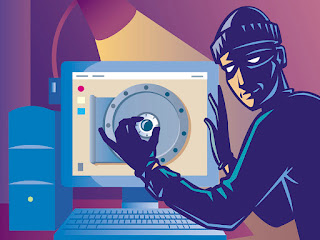Every website that you register an email or create an account in, you usually, or always need a password. Long ago, it wasn't such a problem but nowadays, with the Internet being a huge part of the economy, hackers have become famous and have taken hacking to a whole new level. Even with this, people still decide to use passwords that are insecure and easy to guess. These are the top 20 passwords that you don't want to use:
- 123456
- 12345
- 123456789
- Password
- iloveyou
- princess
- rockyou
- 1234567
- 12345678
- abc123
- Nicole
- Daniel
- babygirl
- monkey
- Jessica
- Lovely
- michael
- Ashley
- 654321
- Qwerty
- infographic
These passwords that I listed have become very unsafe to use and are easy to guess, even you may think that passwords like "654321" or "infographic" are not common passwords. The best way to prevent this, obviously, is to build a stronger password. One may think that certain accounts are not that important but bank accounts also have a password!
Main points:
- Passwords are very weak
- Passwords must be strong in order to prevent hacking
- Passwords can store lots of private information that hackers can obtain'
The picture below can help you prevent hacking. It also shows statistics of passwords being used nowadays.
So to create a strong password, it must not be simple. It must be creative, contain capital letters, numbers, and even punctuation such as the exclamation mark.
Potential Strengths:
- The author shows that passwords are weak and by raising awareness like this, it will help a lot.
- It might help people to start creating passwords that are secure and actually take care of their accounts.
- It might save them from the future (example: they could create a Paypal account online and create a weak password).
Disadvantages:
- It might cause a psychological stress. Even if it may be more secure, it may worry people too much.
- People might be worried and create a password that is too tough to remember and they end up forgetting it.
Questions:
Why won't many websites just prevent or disallow passwords that are easy to guess? How else can a password be safe and private? Is there any way to make things safer just in case? Those are some questions that I ask myself.
"Top 20 Worst Passwords That Can Hack Your Private Accounts?" Allinfographics.org. AllInfographics, n.d. Web. 28 Jan. 2013. <http://allinfographics.org/top-20-worst-passwords-that-can-hack-your-private-accounts/>.
- 123456
- 12345
- 123456789
- Password
- iloveyou
- princess
- rockyou
- 1234567
- 12345678
- abc123
- Nicole
- Daniel
- babygirl
- monkey
- Jessica
- Lovely
- michael
- Ashley
- 654321
- Qwerty
- infographic
These passwords that I listed have become very unsafe to use and are easy to guess, even you may think that passwords like "654321" or "infographic" are not common passwords. The best way to prevent this, obviously, is to build a stronger password. One may think that certain accounts are not that important but bank accounts also have a password!
Main points:
- Passwords are very weak
- Passwords must be strong in order to prevent hacking
- Passwords can store lots of private information that hackers can obtain'
The picture below can help you prevent hacking. It also shows statistics of passwords being used nowadays.
So to create a strong password, it must not be simple. It must be creative, contain capital letters, numbers, and even punctuation such as the exclamation mark.
Potential Strengths:
- The author shows that passwords are weak and by raising awareness like this, it will help a lot.
- It might help people to start creating passwords that are secure and actually take care of their accounts.
- It might save them from the future (example: they could create a Paypal account online and create a weak password).
Disadvantages:
- It might cause a psychological stress. Even if it may be more secure, it may worry people too much.
- People might be worried and create a password that is too tough to remember and they end up forgetting it.
Questions:
Why won't many websites just prevent or disallow passwords that are easy to guess? How else can a password be safe and private? Is there any way to make things safer just in case? Those are some questions that I ask myself.
"Top 20 Worst Passwords That Can Hack Your Private Accounts?" Allinfographics.org. AllInfographics, n.d. Web. 28 Jan. 2013. <http://allinfographics.org/top-20-worst-passwords-that-can-hack-your-private-accounts/>.




